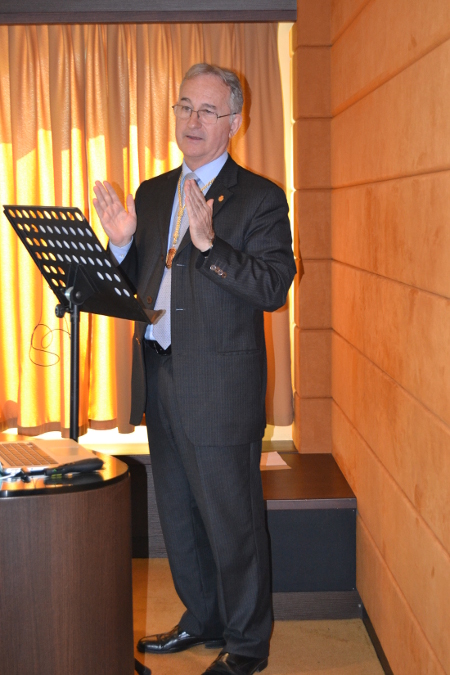“Young people should go out to protest for the debt”

Dr. Joan Francesc Corona
Joan Francesc Corona, full academician of the Royal European Academy of Doctors-Barcelona 1914 (RAED) and director of the Spanish Family Business Institute, inaugurated the Third International Act of the RAED, which took place between 15 and 22 July in several Baltic cities, with the conference “Déficit, deuda e ilusión financiera” (Deficit, debt and financial illusion), where he tried to unmask a practice that he considered as recurrent as dangerous for the Spanish economy.
“Why is it so easy to issue public debt? -Corona asked, denouncing the lack of rigorous legislation or effective public control over government indebtedness-. Public debt is seen as an asset, when in reality it’s a a very comfortable way of not cutting without raising taxes, a mechanism to finance the public sectors that are financed without the citizens’ knowledge, an illusion that has visible but also diffuse invisible”.
For Corona, the issuance of debt demonstrates the inability of the Administration to meet its current expenses, but beyond that is the assumption of risks very difficult to calibrate. “We live in the paradox that we are the eurozone country with the most growth prospects today, but we have 100 basis points in the risk premium. Citizens can perceive an acceptable present and a hopeful future, although in reality it’s enough dark because of that debt that now gives us an illusion”, he said. “Other more diffuse effects are that the public debt subtracts financing to the country’s private economic activity”, he added.
For the academician, professor of Public Finance at the Abat Oliva University, “young people should go out to protest for the public debt, as they will suffer the consequences. We should demand that our rulers be very rigorous with the public accounts”.


